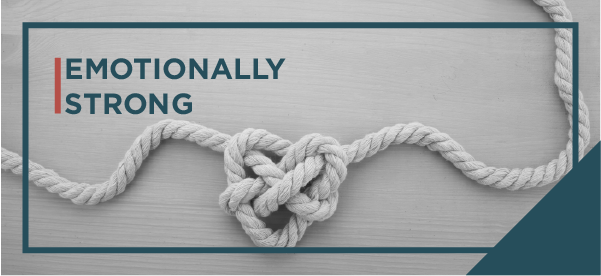Much like Johnny Cash, I walk the line. As a coach, of course, I walk a different line than Cash… not the criminal line, not the line between light and dark, but rather the line between being highly supportive and highly directive. Some people would call it tough love … I like that too. But I call it being “emotionally strong.”
Leaders benefit from this kind of emotional strength. They benefit from walking the line. It’s not just having and knowing emotional intelligence – it’s the consistent application of it.
When I attended the year-long coaching certification process, our instructor and “Master Coach” kept a debate going from day one based on the question, “What quality makes the best coach?” I believe it’s the same answer for what makes an effective leader. And it all comes down, in most cases, to emotional strength.
Why do I bring this up, and what do I mean by this?
First, why?
I am concerned that as a collective whole, we continue to move toward being less and less capable of disagreement, independent thinking, creative problem solving and meaningful collegial debate – all leading to the tendency of anchoring in the place of being offended, rather than engaged with one another. And it is exactly those qualities that will propel every organization forward in the most stable and the most uncertain times.
Leaders will benefit greatly from facilitating and encouraging more creative thinking, collective and independent work, working in and with conflict, and the ability to accept self and others over disagreement and personal offense.
What is “emotionally strong”?
In the context of leadership, it’s the ability, the courage, the bravery to create and hold the space for self and others to explore possibilities. Emotional strength requires the ability to be highly supportive and highly directive. As leaders we need to be the loudest and proudest cheerleaders while at the same time being the strongest drill sergeant. Leadership is a both/and job.
Emotional strength also requires the ability to sit in conflict or disagreement without being offended. Leaders and followers both will benefit from this. Don’t think for a moment that this is a male-macho thing, and it’s not just for leaders. We all need to remain sensitive yet strong enough to truly listen, connect and weather the storm in disagreement and conflict. I wonder if we’re comfortable enough with ourselves to hold this “both/and” paradox and operate from a center of emotional strength more often than we currently do.
As a coach, I am often called to guide leaders to develop in ways that can be confronting for them. Rarely have I met a leader unwilling to dig in and work through and past the challenges. If you are interested in developing to that next level of leadership performance, check out the many programs we have detailed on our website at www.getemergent.com.
If you would rather have a more personally guided conversation, email me at [email protected] or [email protected] and I or one of my colleagues will reach back out to you!

Comments (0)